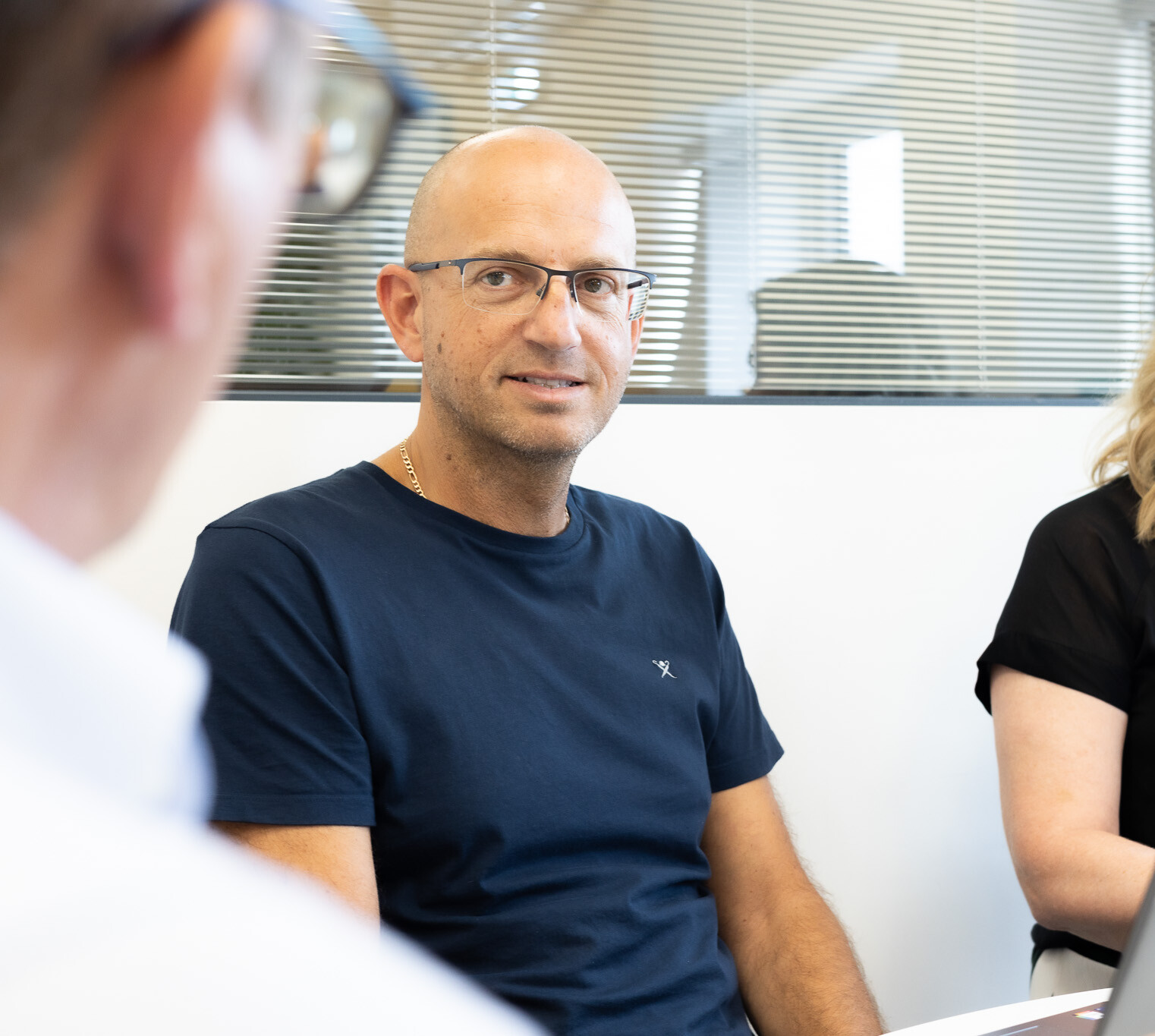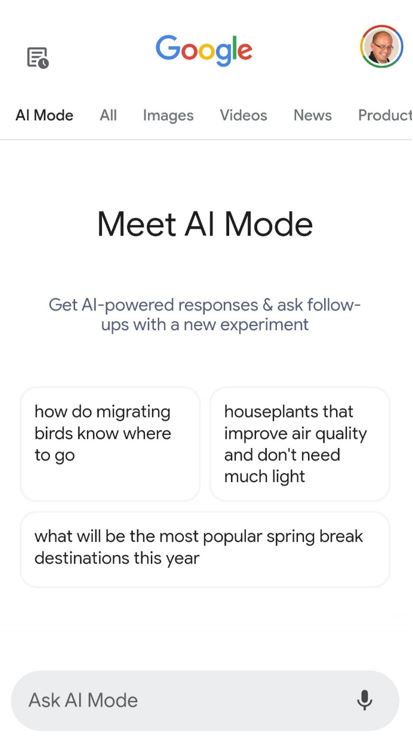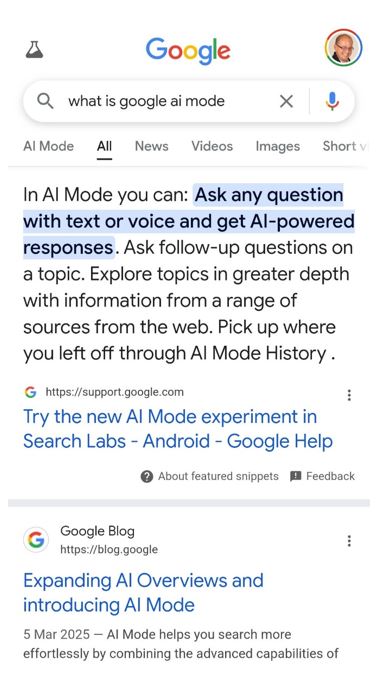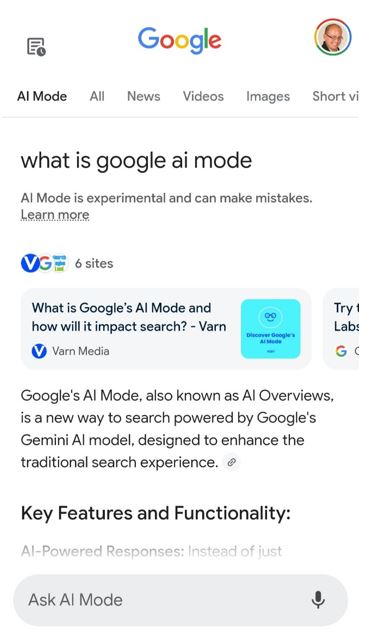SEO Insights: March 2025 Report

March was another month that was dominated by AI news. To summarise, Google:
- 1. Rolled out its AI Overviews (AIOs) in more countries
- 2. Expanded AIOs to use its more advanced version of Gemini 2.0
- 3. Launched a new feature called “AI Mode”
AI Mode is currently available via a waitlist in Google Labs, but we managed to get early access and have been testing out this new feature.
AI Mode works in much the same way that AI chatbots like ChatGPT, Gemini, Claude etc. do. However, Google is integrating AI Mode more firmly into search and often appears as the first option to search. See below:

By default, when searching in the traditional Google search bar, Google will display results under the “All” option. You can see an example of this in the screenshot below:

By clicking on the “AI Mode” option, however, the SERP will change and will present a completely AI generated result for the search time, with some websites to click on. See below:

The actual “AI Mode” result is quite long and, at this stage, it’s hard to say how likely a user is to click through to the sites at the top. Most of the sections include a small link icon which, when clicked, brings up relevant websites for further information.
So what’s the key difference between “AI Mode” and “AI Overviews”?
The main difference is that “AI Mode” offers a much more complete result, and the user can continue the conversation to get more specific insights and results. As a result, it becomes more of a conversational tool with Google.
It combines the ability to really understand what the user is asking combined with Google’s extensive knowledge graph, products, images and videos. It can deliver a very complete result to the user.
What needs to be emphasised is that this is probably going to become the default Google search experience for more users, sooner rather than later.
As with all of Google’s launches, they are initially made available by invitation only, to create a buzz around the tool, and then open it up to everyone very shortly afterwards.
Google’s mission was always to get to the stage where you would essentially have an all-knowing search engine. It’s always strived to create a search engine that you can ask anything at any time, conversing with it like another human being.
It’s practically there.
What’s more, search habits are changing.
We’re already seeing a growing amount of traffic going to websites directly from AI chatbots. While these traffic levels are generally still low, the trend is very much there.
Having the ability to ask a question to an AI tool, and get an answer without having to click on a series of websites in the process, demonstrates exactly how search is evolving. As with many AI-generated results, they are – not always but generally – very good and they don’t always make it necessary for users to click on the cited websites for more information.
This is probably going to lead to a slow, gradual decline in Google search traffic going to websites, but fear not, because there are also plenty of huge opportunities to drive traffic via these innovative new AI search tools.
Understanding how websites can be increasingly recommended by the AI search tools is something that we have been working on for several years as part of our AI (ARTEMIS INTELLIGENCE®) initiative.
Search is changing (rapidly), and we are rapidly adapting to maximise the opportunities for our clients, not just from the new, AI-led Google, but also from the plethora of AI chatbots which are growing in popularity every day.

